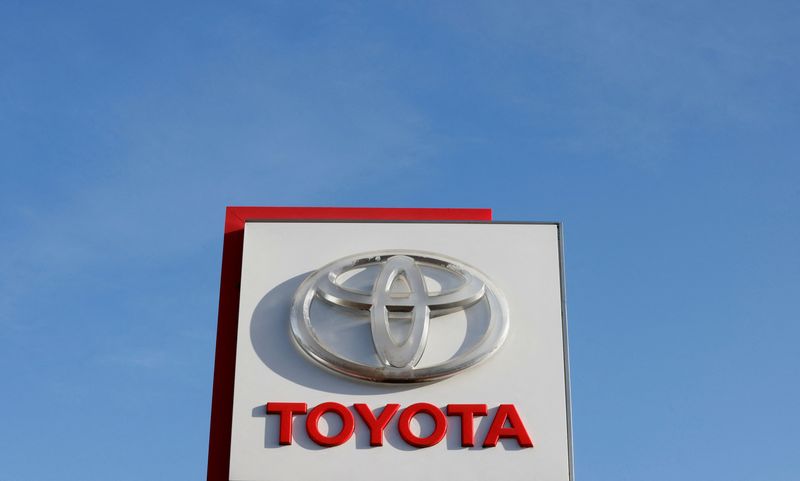By David Shepardson
(Reuters) -Toyota Motor said on Wednesday it is raising the wages of nonunion U.S. factory workers just days after the United Auto Workers union won major pay and benefit hikes from the Detroit Three automakers.
Hourly manufacturing workers at top pay will receive a wage hike of about 9% effective on Jan. 1, the company confirmed. Other nonunion logistics and service parts employees are getting wage hikes.
The largest Japanese automaker also said it is cutting the amount of time needed for U.S. production workers to reach top pay to four years from eight years and increasing paid time off.
The media and organizing project Labor Notes earlier reported the wage hikes and other details, citing a company document.
"We value our employees and their contributions, and we show it by offering robust compensation packages that we continually review to ensure that we remain competitive within the automotive industry,” Chris Reynolds, Toyota Motor (NYSE:TM) North America's executive vice president, said in a statement.
The pay of production Toyota workers in Kentucky at top scale will rise by $2.94 to $34.80 an hour.
Under the new tentative agreements with General Motors (NYSE:GM), Ford Motor (NYSE:F) and Stellantis (NYSE:STLA), UAW workers will receive a wage hike of 11% upon ratification and 25% in wage hikes through April 2028. UAW workers will also be given cost-of-living adjustments. The amount of time needed for workers to hit top pay will decrease to three years from eight years.
The top pay of UAW workers at Ford will initially rise to $35.58 and hour from $32.05.
For years, the UAW has unsuccessfully sought to organize U.S. auto plants operated by foreign automakers including Volkswagen (ETR:VOWG_p) and Nissan (OTC:NSANY). UAW President Shawn Fain said his goal is to organize plants operated by other automakers after the Detroit Three deal.

"One of our biggest goals coming out of this historic contract victory is to organize like we’ve never organized before," Fain said on Sunday. "When we return to the bargaining table in 2028, it won’t just be with the Big Three, but with the Big Five or Big Six."
The UAW declined to comment on the Toyota wage hikes.